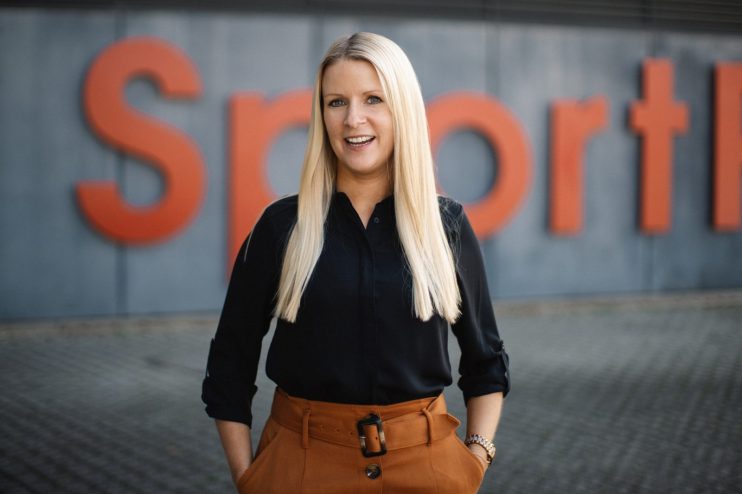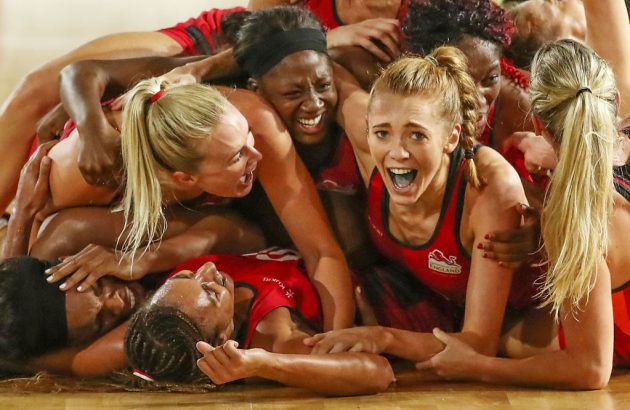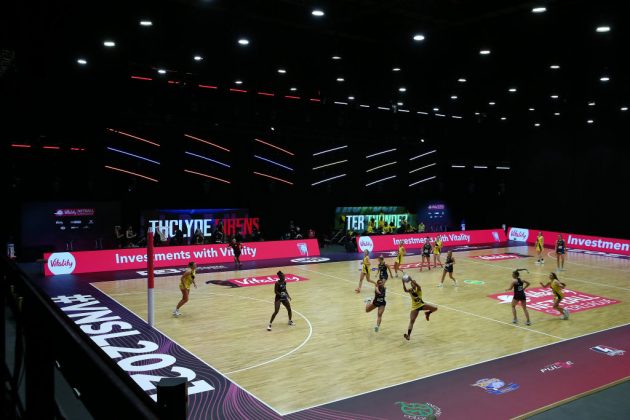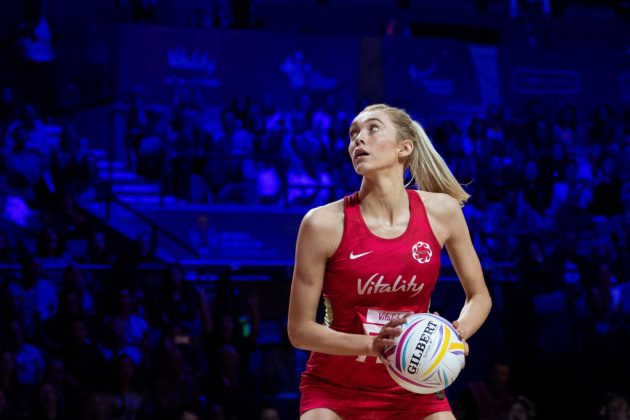England Netball chief Fran Connolly on the sport’s huge growth, plans to professionalise, and interest from private investors

Few sports can have had their momentum checked by the pandemic quite like netball in the UK.
A decade of extraordinary growth in which participation doubled and exposure at elite level reached unseen heights was jeopardised when Covid-19 hit, forcing a premature end to the Superleague season and halting grassroots netball.
Almost a year on, however, optimism has returned. The 2021 Superleague campaign began at the weekend, backed by a new broadcast deal with Sky, plans to professionalise the sport are back on the agenda, and offers of private investment are on the table.
“Going into 2020 we were on a real high as a sport,” England Netball chief executive Fran Connolly tells City A.M.
“So when Covid hit, it couldn’t have hit us at a worse time. It has really tested the resilience of the business.
“The whole sport has been agile and adapted really well. We have managed to return all parts of the game, which I’m really, really proud of.”
How England Netball borrowed from business
Netball’s meteoric rise in both participation and profile made it one of the success stories of the last decade in British sport.
From 2010 to 2019, the number of girls and women playing the game at grassroots level doubled to 1.6m. Pre-pandemic, 236,000 adults were weekly netballers.
That growth is partly down to England Netball offering a range of different ways to play, from Bee Netball for children to Walking Netball for the less mobile and Nets, a fast-paced, non-stop version of the sport played inside a netting cage.
“We want every woman or girl to have the opportunity to participate in netball in a way that works for them, so we have a product whether you’re five or 85,” says Connolly.
“I’m a strong believer that if you put the player or participant at the centre of everything and work backwards from that, any sport can achieve in the same way that we’ve grown.
“I think it’s a case of really knowing your customers; something that’s really commonplace in business and less in sport.
“We’ve always wanted to be a sports business with a heart. And by putting the participant first we believe the commercial revenue will follow that.”
Roses success and World Cup fever
If smart strategy stoked the fire of netball’s growth then recent international success provided the kerosene.
When Helen Housby scored in the very last second to secure Commonwealth Games gold for England in 2018, netball hit the front pages.
Hosting the World Cup a year later, at which the Roses took bronze, kept the sport in the spotlight.
The impact of those two events was that almost 300,000 women played the game more often, according to England Netball’s research.
“When the Roses perform like they did we see an immediate influx of participants,” says Connolly, who was director of development from 2010 before succeeding Joanna Adams in 2019.
Crucially, World Cup fever also translated into appetite for domestic netball.

The 2020 Superleague season opener drew almost 9,000 fans, up 53 per cent on the previous year and even more than the World Cup final itself.
That was as good as it got for netball before the coronavirus pulled the rug out from under the sport, however.
Superleague fixtures paused in March and the season was abandoned in May, stripping away vital ticket and broadcasting income.
At amateur level, all indoor netball had to be moved outdoors.
For England Netball lifer Connolly, who also plays at regional level, it was a cruel twist less than a year into a role that promised to be her dream job.
How England Netball got Superleague back in 2021
But the organisation has proved resilient.
A £4m injection from the government’s £300m Winter Survival Package for sports eased financial pressure, as did the commitment of 80,000 loyal England Netball members, who renewed despite all activity being on hold.
Last month, England played their first home series since the pandemic.
Behind closed doors in Loughborough, they beat a Superleague All Stars 3-0 after their scheduled opponents Jamaica proved unable to travel to the UK.
And last weekend at Wakefield’s Production Park, a vast indoor venue normally used by bands rehearsing for arena dates, a year’s worth of hope and hard work came to fruition.
The 2021 Superleague season started, albeit without fans and incorporating necessary adjustments to make it Covid-compliant.
Home and away fixtures are on hold. Instead, the first nine weeks of games are being played in Wakefield, with the remainder at London’s Copper Box.
This compromise means that health risks can be minimised and the logistical and financial burden moved from clubs to England Netball.
“We think that the way we’re returning it we’ve got a real fighting chance,” says Connolly.
Why new Sky deal offers balance between revenue and reach
Another timely boost arrived on the eve of the new season in the form of a record broadcast contract with Sky Sports.
The subscription network has shown Superleague since 2016, elevating the sport alongside prestigious properties such as Premier League football and Formula 1.
England Netball’s new deal goes further, meaning that every game will be available on either Sky Sports’ linear programming or YouTube.
At a time of renewed debate about sports such as cricket suffering from being behind a paywall, Connolly believes it strikes the right balance.
“It’s something we’ve thought about quite carefully behind the scenes and we’ve had open and honest dialogue with Sky about this,” she says.

“I think there’s a really careful balance for sports between revenue and reach. And I don’t think one can really exist without the other.
“If we want to drive our sports forward, we’ve got to accelerate the reach, not just the investment into the sport.”
Connolly says the Sky deal allows England Netball to work with free-to-air broadcasters for games in certain competitions.
“We made sure that was included in the agreement so we could maximise that reach,” she adds.
“And I think broadcasters are more and more recognising the need for sports to do that.”
Next? Professionalising the sport and doubling participation again
How quickly they can be realised will depend on how soon fans can attend live sport, but England Netball has big plans.
Chief among them is professionalising the game beyond the national team.
“We want athletes to be able to have full-time careers as part of this sport,” says Connolly.
“At the moment a proportion of them do, but it’s not a big enough proportion. In the next couple of years we want to change that.
“Without Sky and the visibility that we’ve agreed through this new partnership, professionalisation isn’t possible.
“The broadcast and visibility comes first; then hopefully that attracts investment from brands, followers, people in arenas.”
Connolly is convinced that the amateur game will continue to grow, too.
“We doubled participation in the last decade and I think in the decade ahead we’d be aiming to do exactly the same thing.
“Our ambition is to accelerate at pace. We don’t want Covid to be the excuse we look back on and say ‘that was our moment and we didn’t recover that momentum’.”
England Netball considering offers from provate investors
Low interest rates and some distressed assets have encouraged private investors to flood into sports ranging from the obvious, such as rugby union, to the less so, like volleyball.
Connolly says netball, too, has had approaches that remain under consideration.
“Yes, us and a number of the top female sports have been approached and we know that there is interest out there.
“We are taking our time to explore that, but at the same time explore other vehicles to move us forward in a different way.
“As a governing body, we’re thinking very carefully about how we want to professionalise the sport and we’re exploring every opportunity on the table right now.”
England Netball is due to publish its 10-year strategy later in 2021 and Connolly says any investor would need to be fully on board for the long haul.
“Regardless of where the money was coming from, I think we’d only ever partner with someone with true value alignment, partners who have the same ambition and who right now want to commit for a long-term period.”

Connolly is also cautious of third parties “seeing women’s sport as a quick fix”.
She adds: “I think that’s a danger in the current climate. There’s a lot of hype about women’s sport but we need to be careful that we approach our partnerships in the right way.”
Women’s sport was riding the crest of a wave pre-Covid, from the success of the Roses and England’s World Cup-winning cricketers to record crowds for the Lionesses.
“I think we’d only just seen a taste of the potential going into the Covid period,” Connolly says.
“I do hope that brands remember that, that their memory stretches back as far as last year.”
